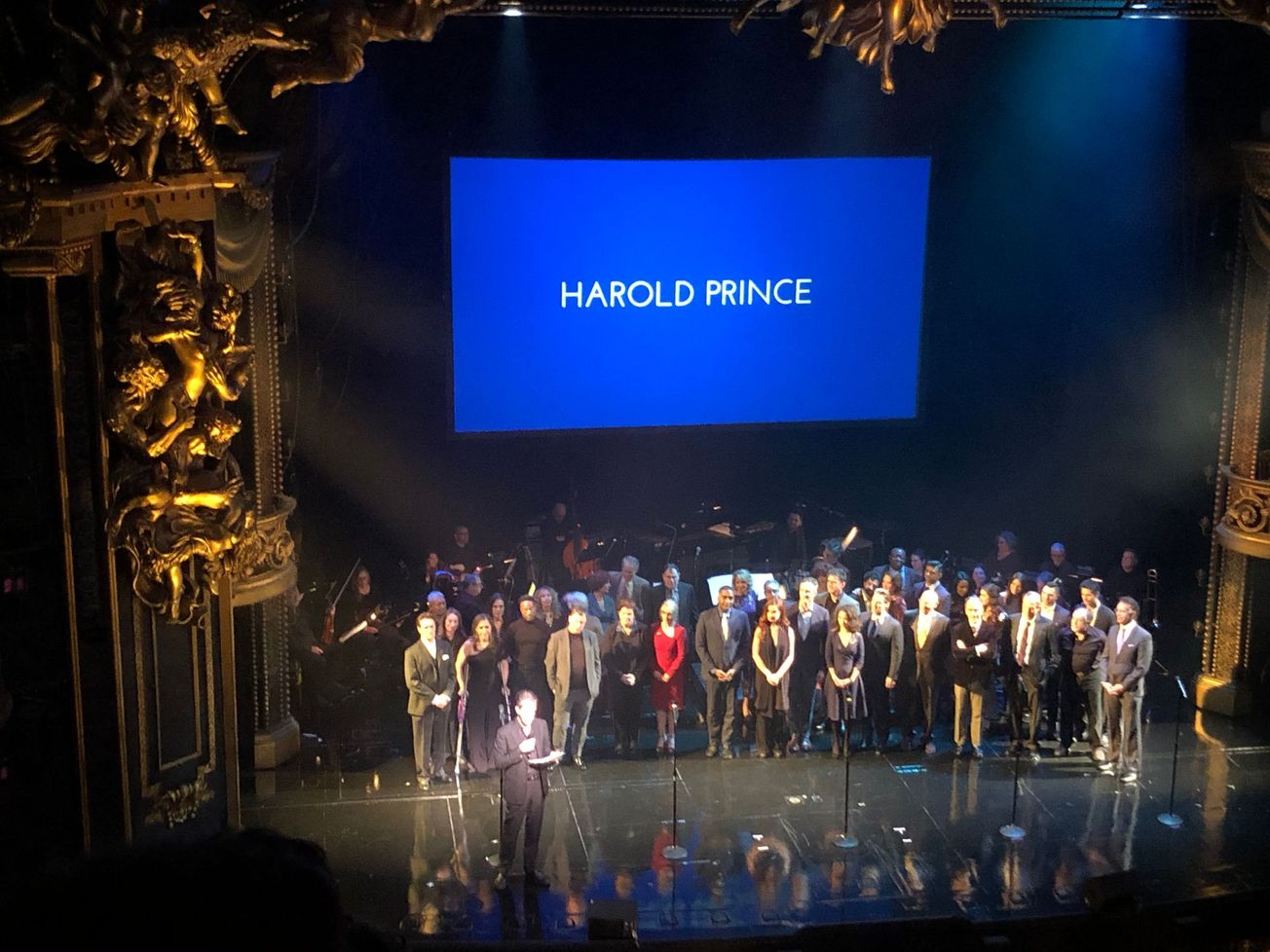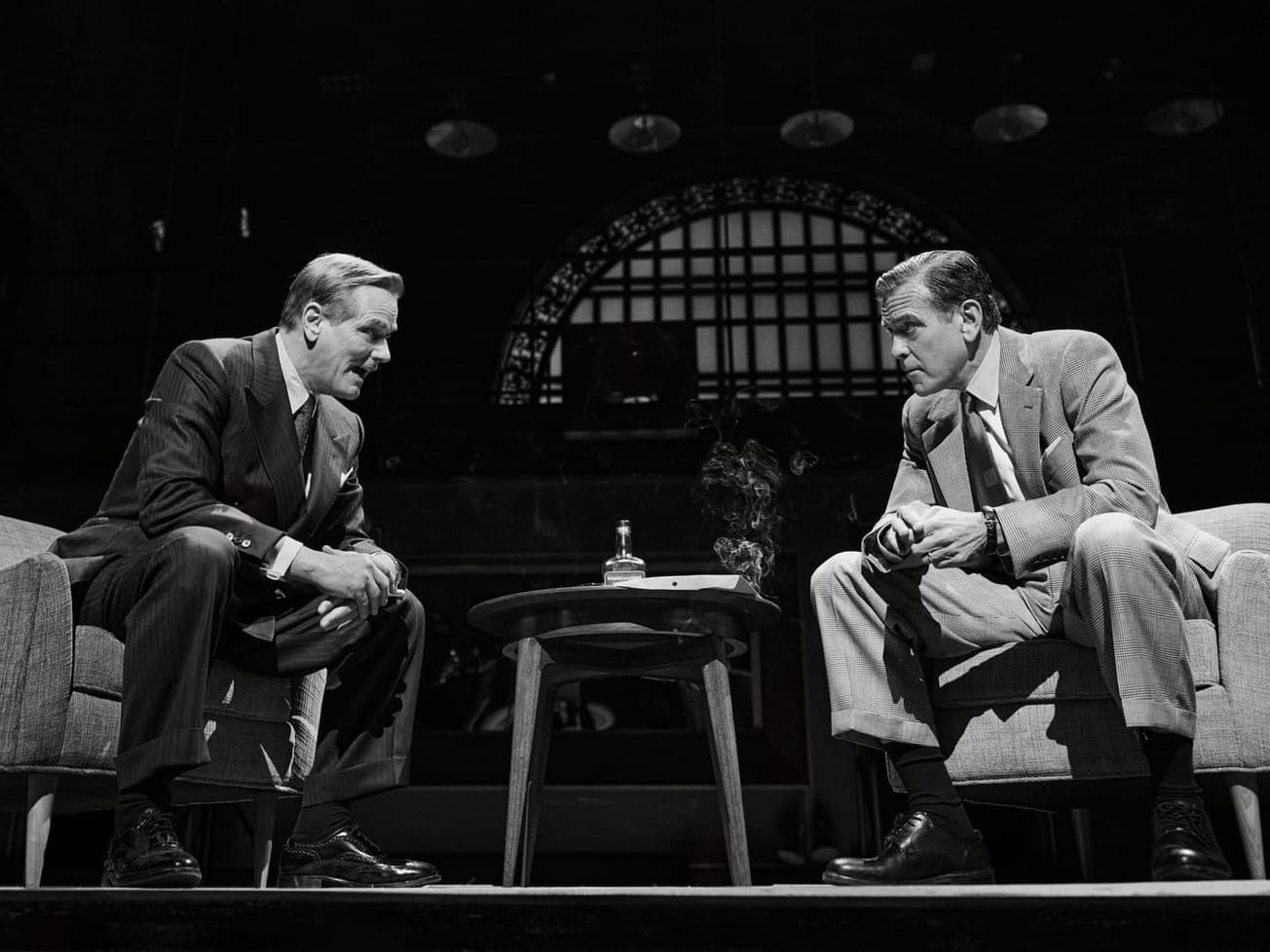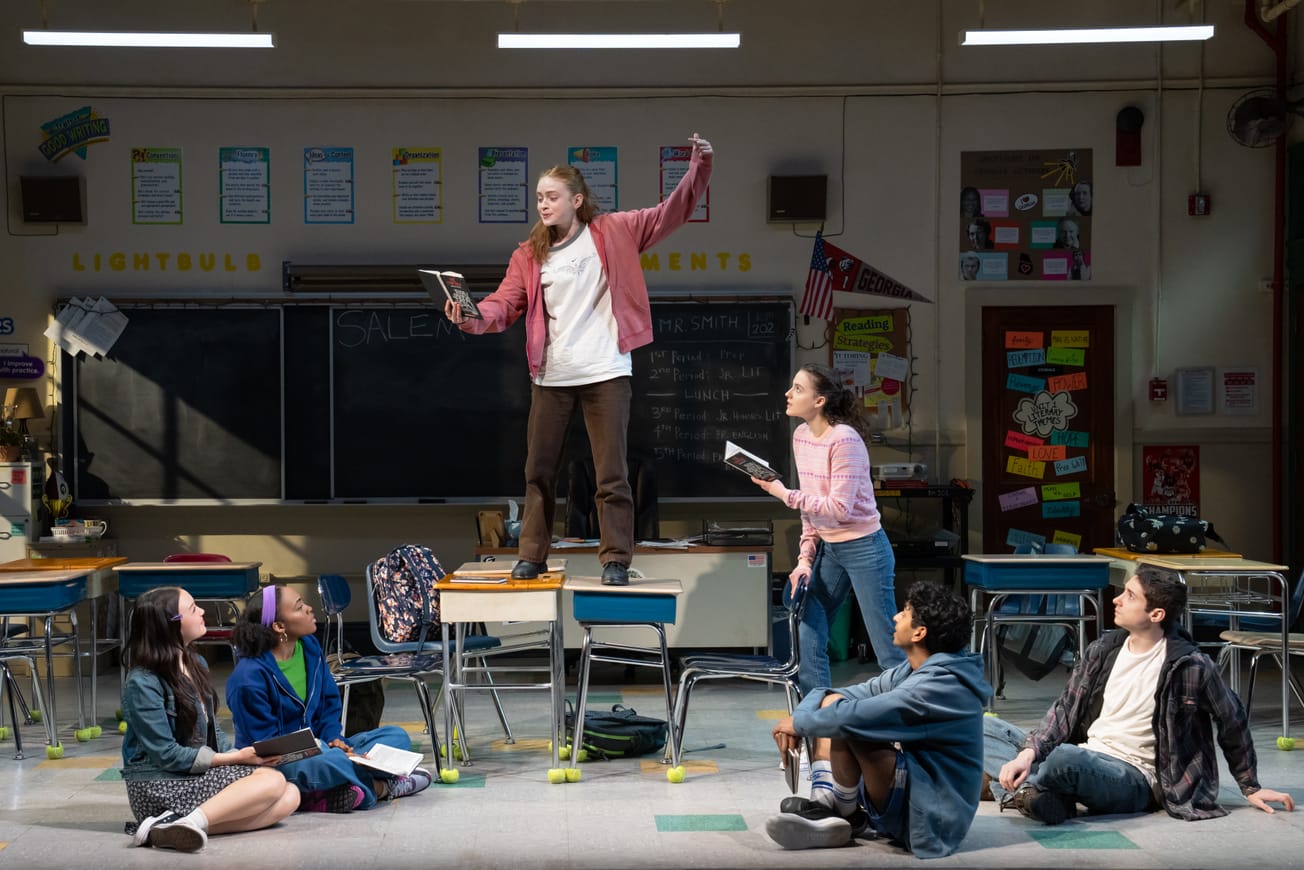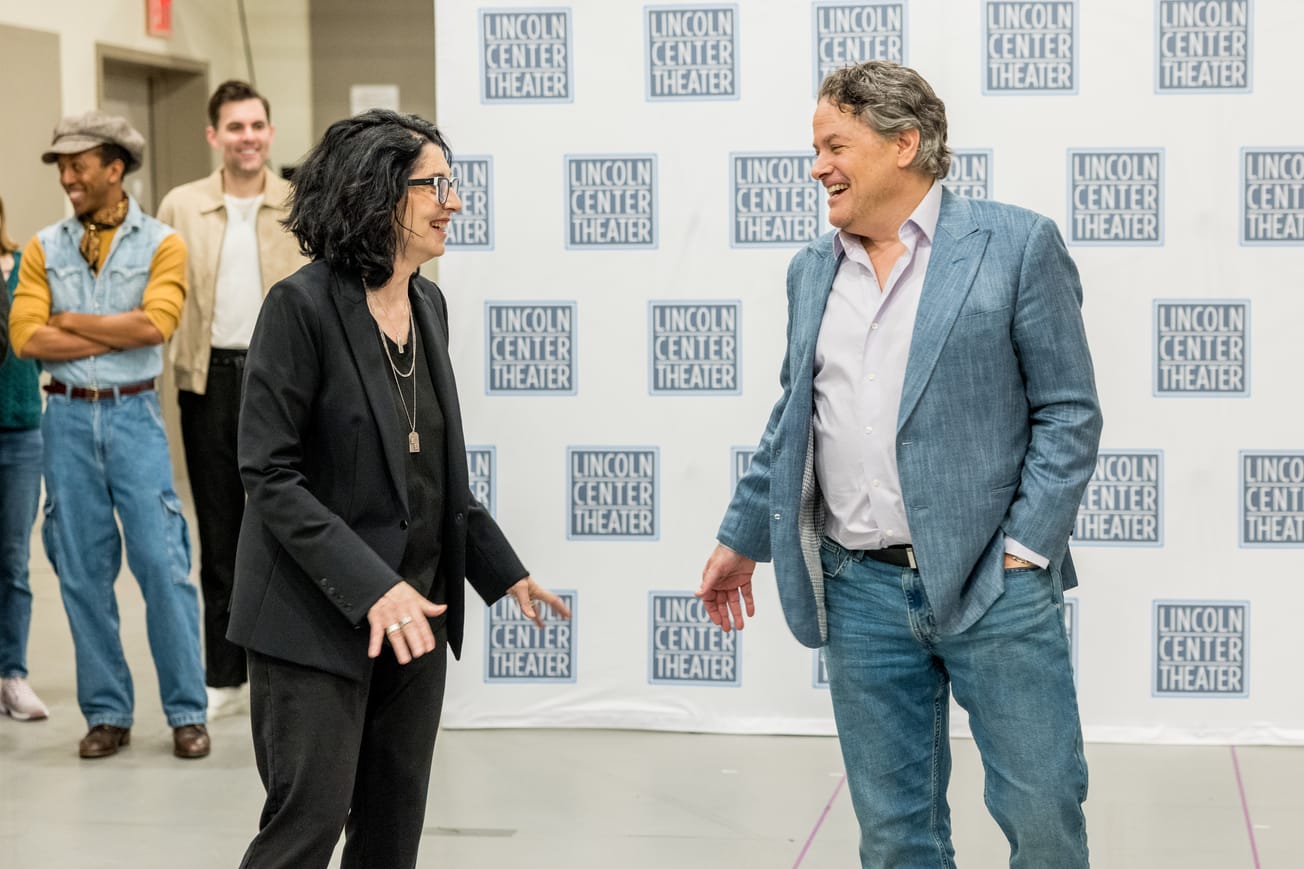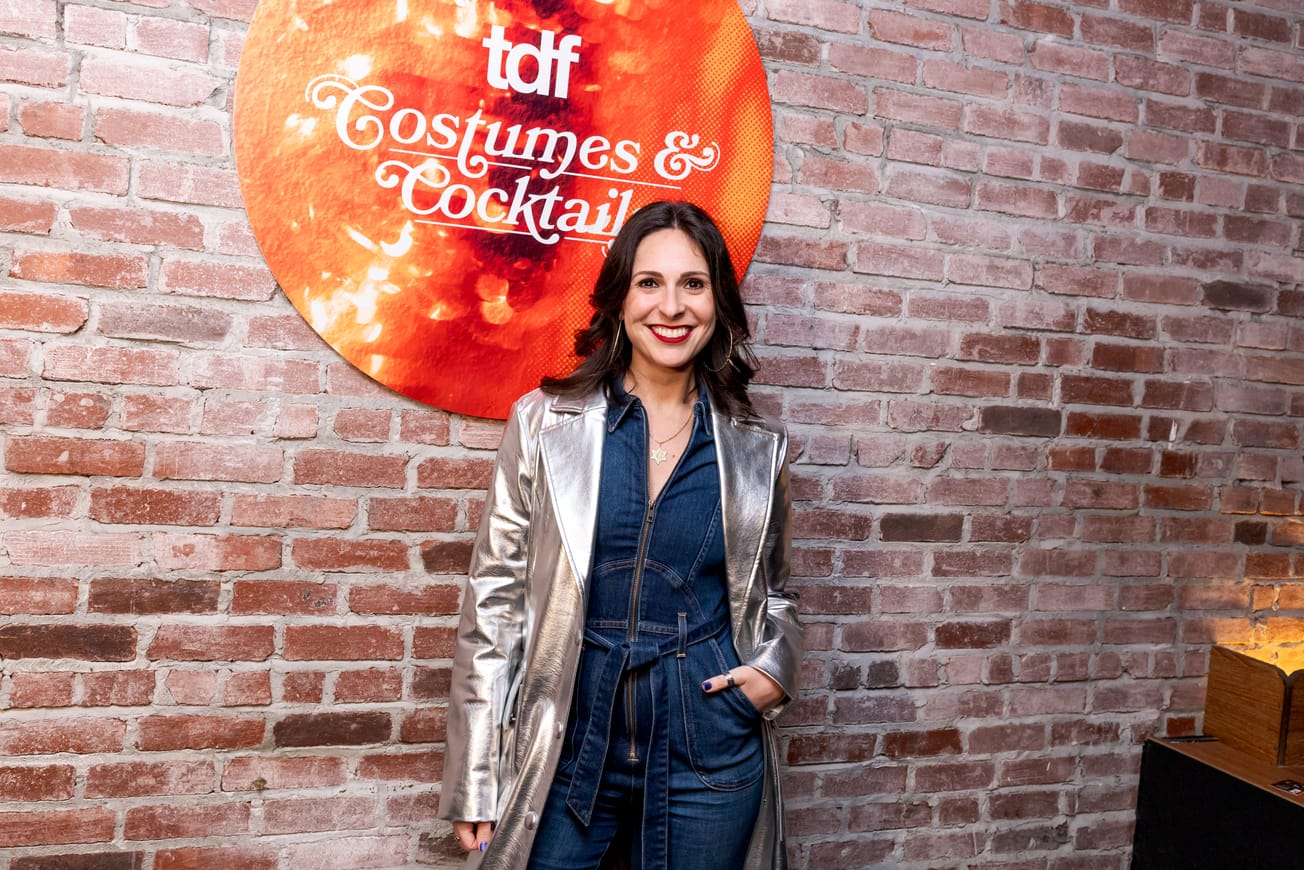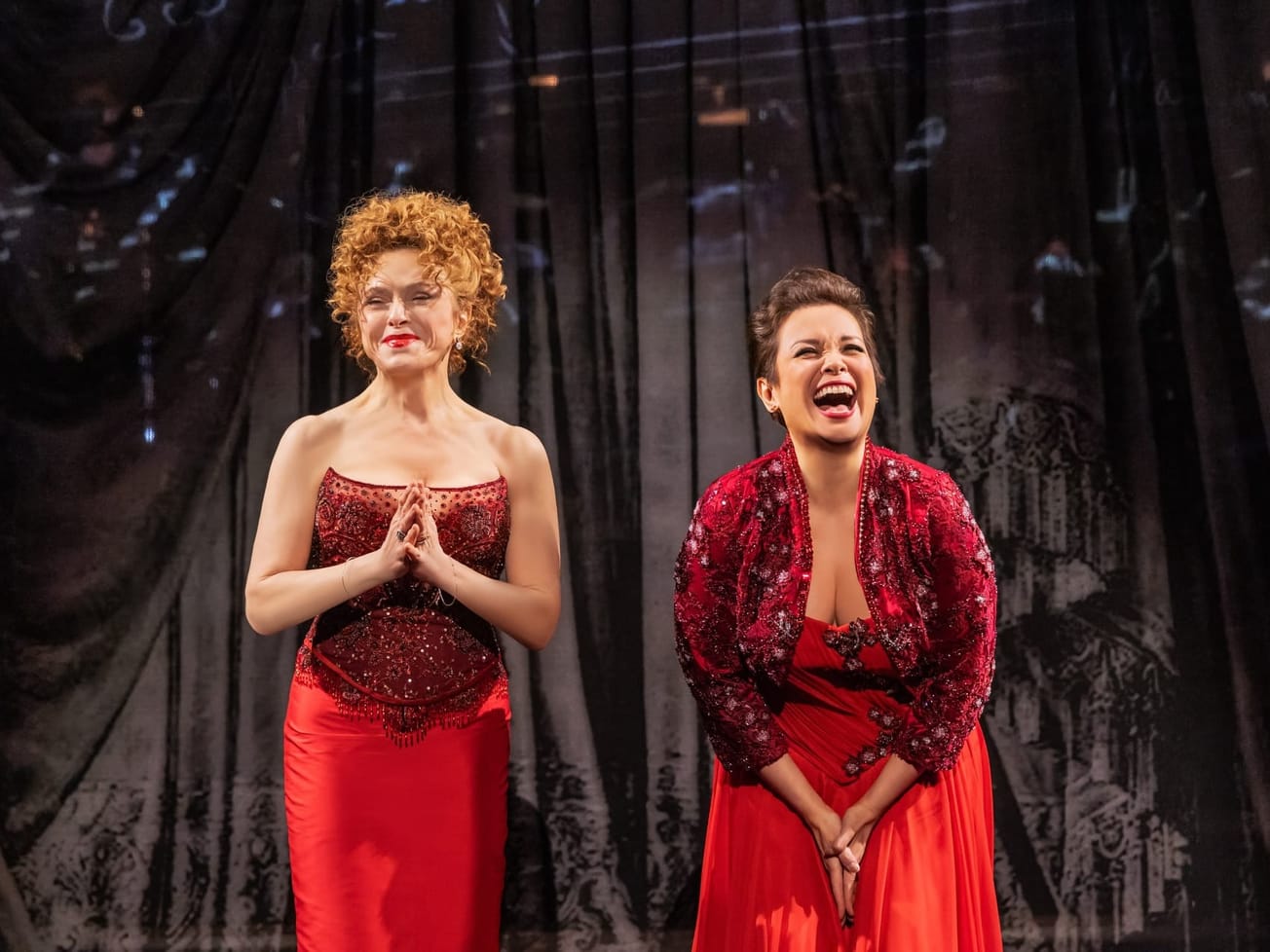“I live for the next musical. I live in the future. I’m totally mindful that nobody will ever have the life I’ve had in the theater. That’s past. And that’s damned sad.”
Harold Prince once spoke those words and none were ever so true. Living for the next musical was Prince’s mantra, familiar to any who encountered him, whether it be a seasoned artist, a young hopeful seeking guidance, or even a journalist; perhaps especially as journalist, for he had little use for discussing the past, as those of us who spoke with him over the years quickly learned.
Monday, however, was all about the past, as Broadway denizens of every stripe and license gathered at the Majestic Theatre – where Prince’s production of “The Phantom of the Opera” has played since 1988 – to celebrate Prince’s life after his run ended in July. Prince’s career bridged two centuries and vast changes in the art, scope and reach of live theater, many of which one could legitimately lay at his feet.
The event, impeccably staged by Susan Stroman and musically directed by Jason Robert Brown — surely two of Prince’s most accomplished students — adhered to the template of these memorials despite an almost unfathomable challenge: How do you summarize a career that encompasses such varied musical giants as “West Side Story,” “Candide,” “She Loves Me,” “Company,” “Evita,” “The Phantom of the Opera” and “Show Boat”?
Perhaps more important, where do you park the failures that provided the urgency and inspiration to press ahead, as Prince famously did the morning after every opening night?
Brown attempted in several ways, proving his mettle as conductor, orchestrator and final speaker. The overture — played by a large orchestra, the likes of which haven’t been seen on Broadway in, well, ever — sampled a dozen shows at least, with a dizzying array of tempos from samba to beguine to Merman-worthy rafter-raiser.
“My name is Jason Robert Brown,” he told the audience (VIPs in the orchestra, hoi polloi in the mezzanine and balcony). “And the only reason people in this room know who I am is because Hal Prince scooped me up and said, ‘This is where you belong.’ He didn’t wait for anyone to confirm that opinion. He just went ahead and said ‘You. Now.’”
At age 24, Brown was tapped by Prince to write the score for “Parade,” thus kicking off a flourishing career in the theater. And so it seemed apt that as he conducted the program, his shadow, cast by spotlights, danced directly beneath the capitalized letters spelling out “HAROLD PRINCE” on a wide blue screen above him.
There were comments from the two apposite giants linked by Prince: Stephen Sondheim and Andrew Lloyd Webber. Sondheim recalled Prince showing up for his own wedding with a script under his arm. Sondheim, his best man, relieved him of the crutch: “I gently slipped it out of his hand and said, ‘Let me take care of this.’” The marriage, as everyone knows, was a keeper, running much longer than even “Phantom.”
As for Lloyd Webber, he recalled receiving encouragement from Prince following the disaster that was “Jeeves,” which led to their collaborations on “Evita” and “Phantom.” But his most vivid memory was of Hal answering the question of a young journalist at a pre-Tony Awards event at the Plaza Hotel.
“Mr. Prince, what is your real hope for the future of musical theater?” the kid asked.
“I hope that the commercial theater on Broadway and in London is going to be able to continue to do new original work,” Prince responded. Another mantra.
Of course there were Great Performances between the speeches from actors who had previously been linked to Prince’s work: Michael Cerveris sang “The Road You Didn’t Take,” from “Follies.” Tony Yazbeck and Carolee Carmello sang “This Is Not Over Yet” from “Parade.” Jay Armstrong Johnson and Meghan Picerno offered “All I Ask of You,” from “Phantom,” and Janet Dacal sang a high-charged “Buenos Aires” from “Evita.”
Bryonha Marie Parham gave the title song from “Cabaret” a thrill, while Sierra Boggess sang the lovely “Will He Like Me?” from “She Loves Me,” Prince’s debut as Broadway musical director. Perhaps the most moving was the reconvening of the original trio — Lonnie Price, Jim Walton and Ann Morrison — from Sondheim’s “Merrily We Roll Along” to sing “Old Friends,” for they were indeed.
But the poignance was reserved mostly for the speakers. Carol Burnett tugged her ear and recalled how Prince had insisted on directing “Hollywood Arms,” the adaptation of her memoir that she and her daughter, Carrie Hamilton, had co-written; her daughter died before the show. After the play opened at the Cort Theatre, Burnett said, “My baby and I went the distance, and it was all because of Hal.”
Laura Linney recalled growing up with the Prince kids, Charlie and Daisy, and observing the director not as the Broadway superstar, but as a dad, never at a loss for family time. After a dramatic sibling breach while on vacation in Spain, Linney spied (her word) on father and daughter in tense conversation. She would never forget, she said, Prince “leaning in and putting his steadying hand on his daughter’s arm, helping her move from one place to another.”
And “Hamilton” director Thomas Kail recalled Prince reputedly telling a stage manager during one particularly tedious tech rehearsal, “It is days like this when I feel that I will live forever. And it is opening nights when I remember that I will eventually die.”
“It makes you laugh and it made me cry,” Kail said. “I thought that he perfectly articulated the way that such rigorous focus makes time disappear.”
The ending, of course, was a heart-breaker.
In front of an onstage crowd of Princeophiles past, present and future, Brown pointed out two young artists Prince had been working with at the time of his death.
“And since he’s not here do it anymore,” Brown said, an audible catch in his throat, “we’re all going to stand here and say it for him: ‘The theater needs you. You have something to say. You belong here. You. Now.’”
Then those onstage sang “Our Time,” pointing to both the future that Prince had envisioned and pathway that he had paved behind him.
And finally Joel Grey returned to the stage to leave the audience with the last lines of “Willkommen” as the theater went to black.


















































